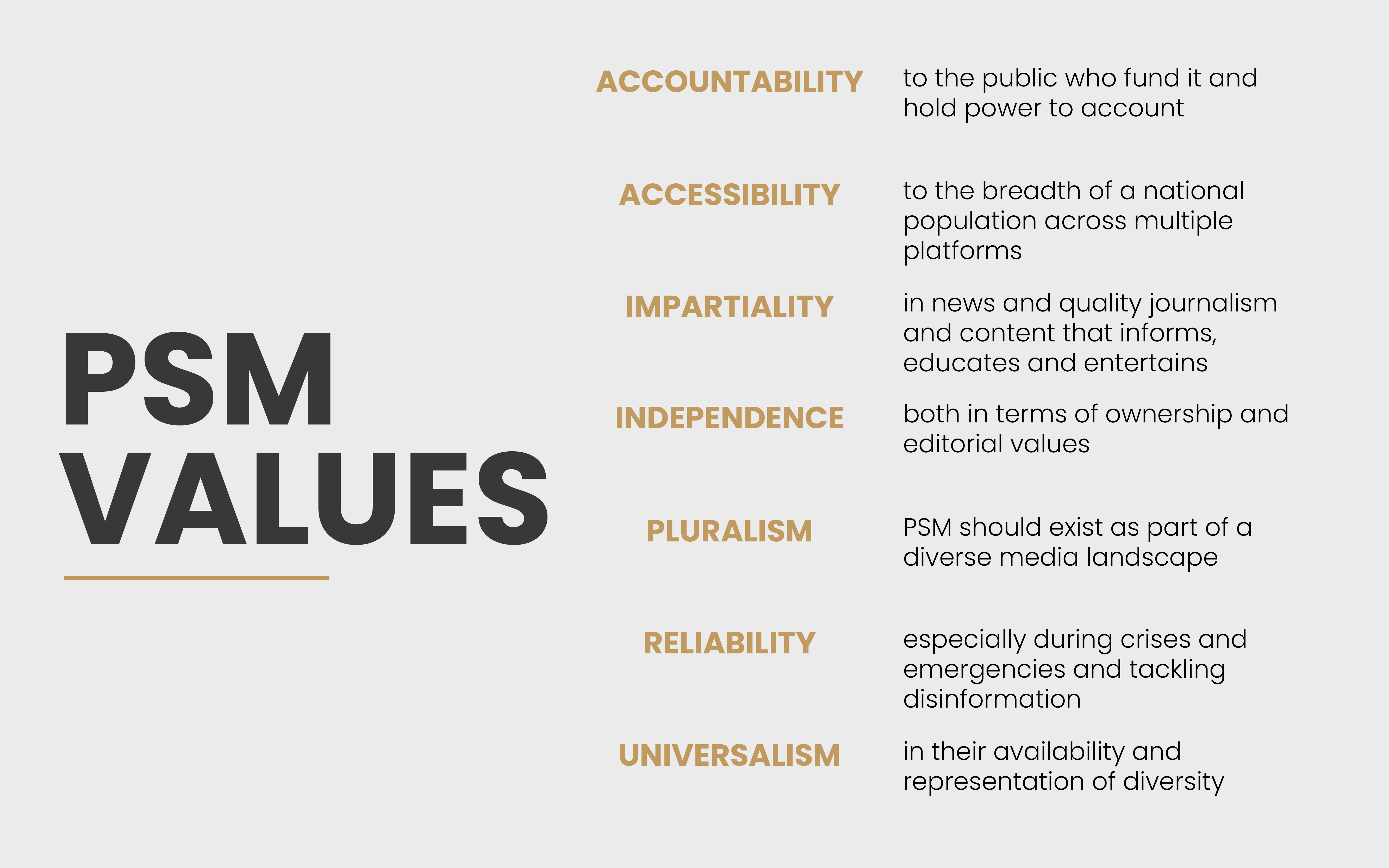Inform, Educate, Entertain
Public service media (PSM) are publicly owned multi-platform media organisations that provide relevant, credible and impartial news, entertainment, and education to their audiences. PSM are essential for informed and effective democracies to survive and thrive, and should be accessible and accountable to all citizens.
UNESCO defines public broadcasting as broadcasting that is “made, financed and controlled by the public, for the public. It is neither commercial nor state owned, free from political interference and pressure from commercial forces.”
While this quote refers to “broadcasters”, public service media extends this definition and refers to public broadcasters in the contemporary digital media era, where they provide services across multiple platforms in addition to TV and radio.
So, public service media counts as ANY media – whether it is TV and radio or digital media – that is owned or funded by the public and is therefore accountable to them. They usually have the core remit to “Inform, Educate and Entertain”, a set of principles that originated along with the BBC in 1922. This is the widely accepted understanding of public media in its purest form.
Examples of contemporary public media organisations include the Australian Broadcasting Corporation (ABC), CBC/Radio-Canada, NHK of Japan, and Germany’s Zweites Deutsches Fernsehen (ZDF).
The main purpose of public media is to provide a variety of quality content that is universally accessible to a diverse audience on a national level. This includes providing reliable information to the public so that they can participate in society in a meaningful way, such as rigorous and impartial election coverage, while a number of public media also play a critical role in public service messaging during emergencies and crises. Impartial domestic and international news coverage is also central to PSM in order to inform public understanding of a complex and globalised world.
Learn more about PSM
Public service media can also be identified and defined through their commitment to a number of universal values:

Adhering to these values is what makes public media among the most trusted media institutions and considered essential for informed democracy. In the 2023 Reuters Institute Digital News Report, public media consistently ranked above their commercial competitors in terms of trust in consolidated democracies around the world.
However, public media requires rigorous and transparent legal, governance and regulatory protections to maintain their independence from political and commercial interference, while a public source of funding (licence fee or tax) helps to ensure that they are accountable to their audience. Such measures require strong support for press freedom and an understanding from political leaders of the role public media plays, regardless of how critical of power and authority they appear to be. Ultimately, public service media organisations are intended to inform, educate, and entertain. They should enable citizens to access and interact with free, independent, engaging and relevant content whether they are in rural or urban environments, irrespective of economic status or technology.
Key Pillars
Funding and governance are central to public accountability
The keys to public engagement – from access to trust
Five content types at the heart of PSM
Evaluating audience reach and impact is essential for PSM



